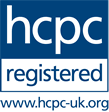What is the difference between a clinical psychologist and a psychiatrist?
A psychiatrist is a medically trained doctor, who has gone on to do further training in the assessment and treatment of mental health problems. Psychiatrists can prescribe medication and provide diagnoses. Some psychiatrists will have done further qualification in non-medical therapeutic techniques, such as cognitive behaviour therapy.
Clinical Psychologists have an undergraduate degree in psychology, followed by a postgraduate doctoral-level degree in Clinical Psychology. This provides clinical psychologists with training in a broad range of therapeutic techniques, and experience in applying these across all ages ranges and in a variety of settings. Some clinical psychologists will have done further training in order to provide diagnoses in specific areas, such as Autistic Spectrum Conditions, but cannot prescribe medication.
What kind of issues does SCCPP work with?
We work with a wide range of emotional and behavioural difficulties in children and young people up to the age of 18. Typical examples would include problems with anxiety, anger or behavioural problems. You can find more details by clicking on this link to our Issues SCCPP Can Help With page.
Due to the part-time nature of my availability, and the fact that I am a lone practitioner, I am unable to manage children and young people presenting with moderate or severe levels of risk ie suicidal ideation and or moderate or significant self-harm. Similarly, I am unable to work with severe mental health problems where a multi-disciplinary team approach is necessary or where in-patient treatment might be needed. For example, we would not take on children with a full-blown eating disorder or psychosis.
I do not work with children and young people with moderate or severe learning difficulties as I have little experience in this area.
What therapies do you offer?
We work with children and their families in a variety of ways. We work with children individually, with parents and other family members individually or with families together. With younger children, we would typically work mainly through parents and with older children or young people we would be more likely to work mainly with the young person themselves.
Clinical psychologists are trained in a broad range of therapeutic approaches and I draw on a range of techniques. As well as psycho-education, I draw on behavioural approaches, cognitive behavioural therapy, systemic family therapy, solution-focused therapy, Acceptance and Commitment Therapy (ACT), and EMDR. The choice of treatment depends upon best practice guidelines for the presenting problem and the method that suits the circumstances and the particular child and family best. For example, if a one-off appointment has been agreed upon, then we would be more likely to draw on solution-focused approaches as these are specifically designed to suit short or very short pieces of work.
Do you do assessments for Autism or ADHD?
SCCPP does not offer neurodevelopmental assessments (for conditions such as autism, ADHD, and dyslexia), nor do we assess for EHC plans.
How much will it cost?
You can find details of our charges by clicking on this link to our Fees page.
Do you guarantee the confidentiality of the information about my family?
The information we hold about children, young people, families and school is confidential and will not be discussed with anyone else, except in the circumstances detailed below. In circumstances where it may be considered desirable (but not necessary) to share information about your child and family, this would only happen with your explicit consent. We conform to the requirements of the Data Protection Act and are registered with the Information Commissioner’s Office.
In cases where a child’s safety is at risk, we are obliged to act in the best interests of the child and in accordance with professional and ethical codes of conduct, to protect the well-being of children and young people. In these circumstances, confidentiality cannot be maintained.
Examples of this include any type of ongoing abuse, or where the abuser may have ongoing access to children, as well as issues such as a child being bullied at school, where the school or parent is unaware. This is likely to mean sharing our concerns with relevant services, including local safeguarding services. If we have met the child via another organisation with whom we are working, for example, a school, then we will also act according to the safeguarding policy of that organisation.


